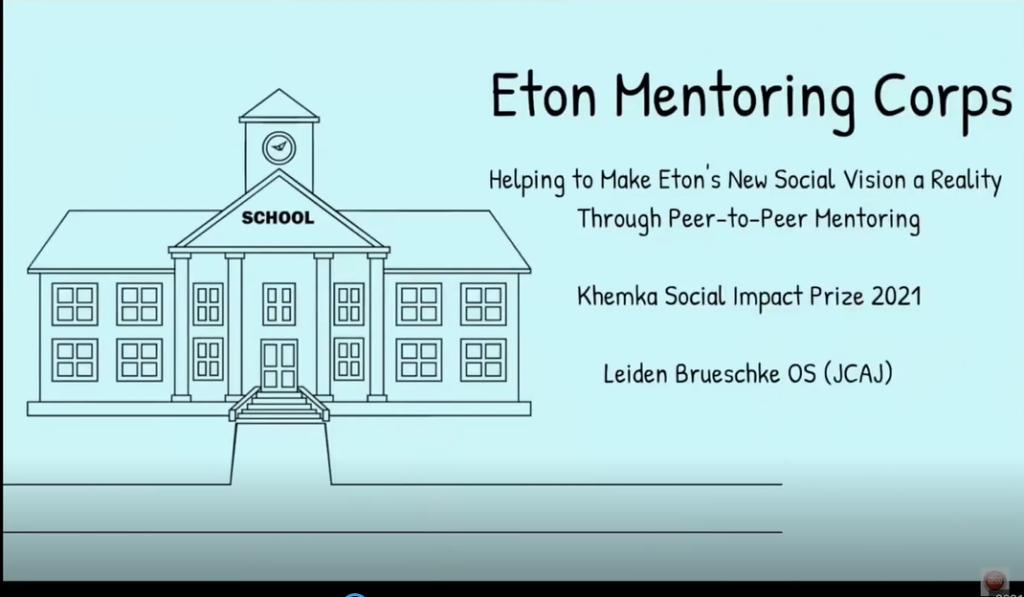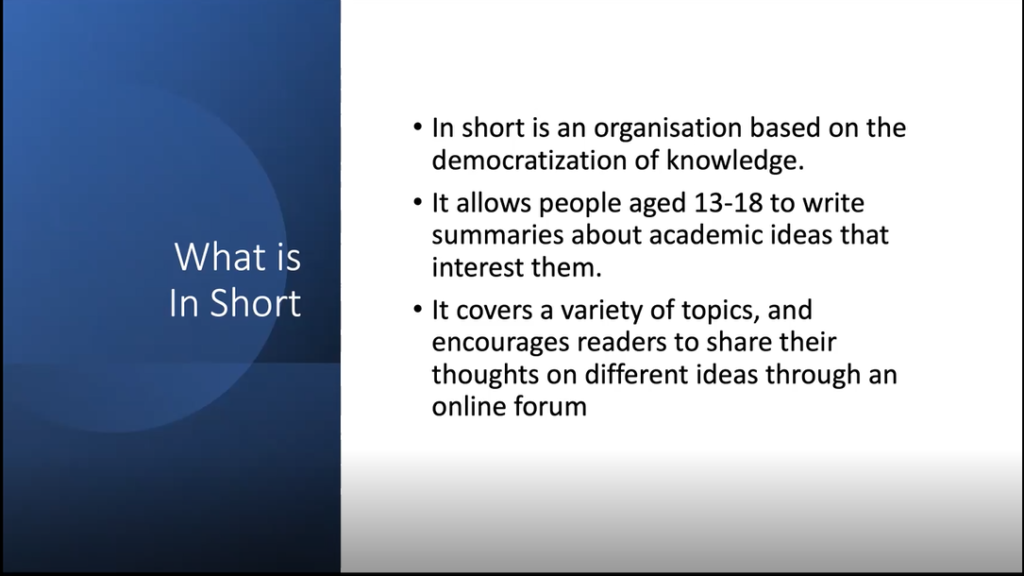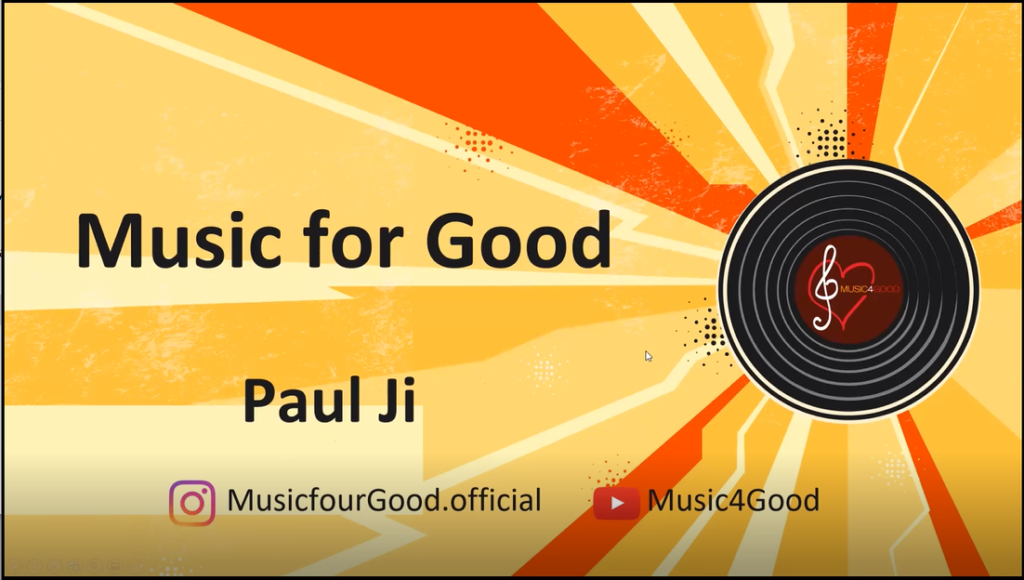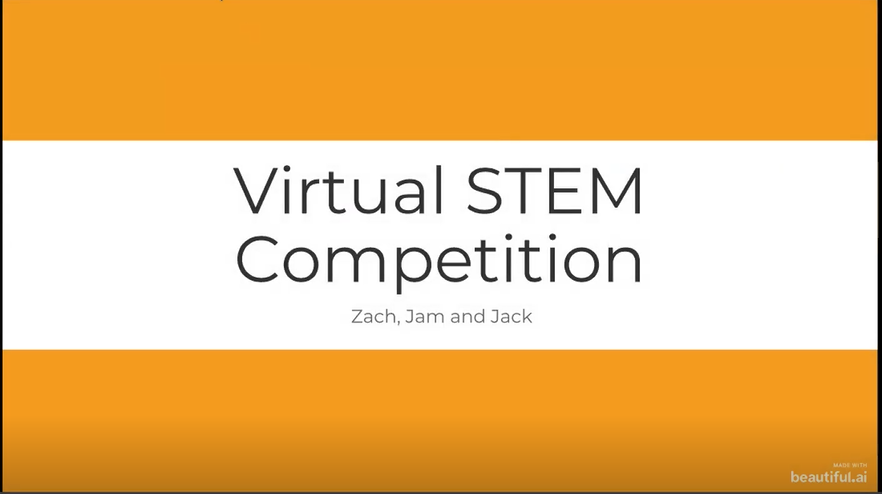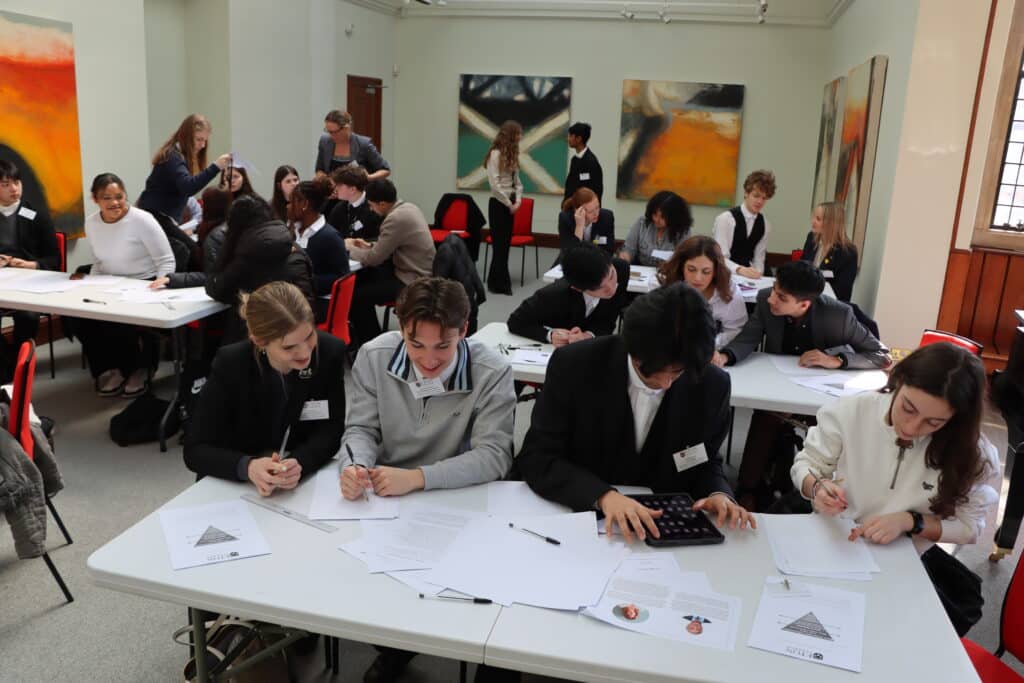This year’s Khemka Social Action Prize took place in a novel Zoom environment, but was still met with a hugely impressive array of entrants. Having develop their idea for a social action project, an initial set of nine candidates was whittled down to four, who were challenged to persuade the judges that their vision for resolving a current local or global social issue was viable.
Paul Ji was the first to present, showcasing his compelling plan for arranging musicians to perform at hospitals, labelled Music For Good. Paul explained to us the practical challenges hospitals face in funding performances, which he deemed as ‘the perfect medicine’. Music For Good seeks to reconcile both the supply of willing musicians and hospital demand for musical performances. Compelling, well-evidenced and with great scope for scalability, Paul’s presentation set the standard for the evening.
Leiden Breuschke was next up to present, outlining his vision for peer-based tutoring within Eton through Eton Mentoring Corps. Leiden’s vision for the EMC was to address the educational discrepancies under-privileged boys face at Eton when adapting to the school, by introducing a peer-based system of tutoring.Showcasing his savvy and well-edited video, Leiden’s commitment to his idea was evident, and was so captivating that Mr Khemka was left wondering why such a mentoring scheme did not already exist!
Behind our next social action vision was a group of enthusiastic STEM students, Zach Marinov, Jam Rahala, & Jack Finnis, presenting STEM Competition. Zach, Jam and Jack explained the importance of STEM education and were intent on tapping into the latent passion for STEM in all of us. By providing team-based STEM competitions across the country, the vision for STEM Competition is to create an intuitive educational platform. Showing extensive research and commitment to the short and long-term life of STEM Competition, Zach, Jam and Jack again kept the standard high for the four hugely impressive social action proposals.
Our last entrant was Gabriel Daudy with his ambitious idea to help make academic writing accessible with In Short. In Short seeks to inspire curiosity and a thirst for knowledge in those intimidated by the endless pages of a JSTOR article, by providing short, accurate and insightful essay summaries. Gabriel’s belief in the democratisation of knowledge was compelling, and through In Short he appears to have found the perfect medium to achieve this.
As the final entrant, Gabriel capped off a hugely impressive evening of presentations and left the judges with the difficult decision of deciding a winner. Drum roll please…after a lengthy and contested debate, Paul Ji was selected as the winner for his altruistic and practical social action vision: Music For Good!
A big thank you also to our judges, Mrs Porcel Martin, Mr Demery, Mr Arbuthnott, Mr Uday Khemka OE.

